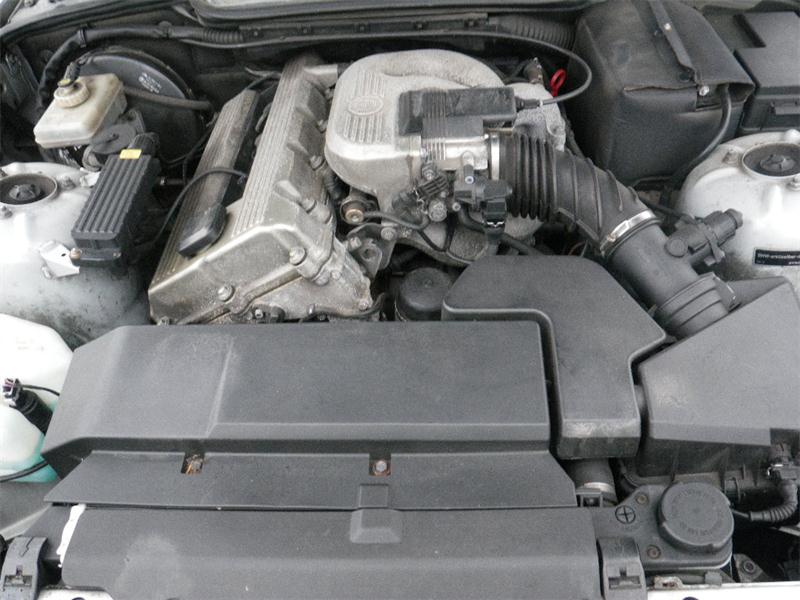Just how to Maintain Your BMW 318ti Running Smoothly for Years
Just how to Maintain Your BMW 318ti Running Smoothly for Years
Blog Article
Essential Considerations for Choosing the very best Engine for Your Requirements
In the realm of choosing the suitable engine to meet your demands, a number of critical factors demand precise consideration to make certain optimal performance and effectiveness. From the nuanced equilibrium in between power and efficiency to the often-overlooked elements of upkeep and solution requirements, each facet plays a pivotal role in identifying the most appropriate engine for your certain requirements.
Power and Efficiency
When assessing engines for optimal efficiency, it is crucial to prioritize both power result and efficiency. Effectiveness refers to just how well the engine converts gas right into usable energy. By carefully evaluating both power and performance, you can pick an engine that delivers optimum performance and satisfies your demands properly.
Fuel Efficiency and Economic Situation
Gas performance refers to the engine's capability to convert fuel right into power with very little waste, directly influencing operating expenses and ecological sustainability. Engines with greater fuel performance not only minimize gas costs however also decrease carbon emissions, adding to a greener operation.

Compatibility and Application
Thinking about the fuel effectiveness and economic situation of an engine, the next vital facet to address is its compatibility and application within particular functional contexts. Compatibility refers to just how well the engine integrates with the general system or tools it powers.
Moreover, the application of the engine is similarly crucial. Various engines are designed for particular objectives, whether it be industrial machinery, marine vessels, cars, or power generators. Recognizing the intended application permits the choice of an engine that can deliver the needed power outcome, torque, and operational attributes. For example, a high-revving engine designed for performance vehicles would not be suitable for heavy-duty building devices that calls for high torque at reduced rates.
Upkeep and Solution Demands
Upkeep and service requirements play a critical role in making sure the long life and optimum performance of an engine. Routine upkeep is important to stop failures, expand the lifespan of the engine, and maintain its effectiveness. find more info When selecting an engine, it is very important to consider the producer's suggested maintenance routine and the accessibility of solution facilities or certified specialists.
Elements such as the frequency of oil modifications, filter substitutes, and general assessments can dramatically influence the engine's efficiency. Some engines might call for even more constant maintenance based upon their style and usage, while others may have longer intervals in between maintenance checks. It is important to stick to these service requirements to avoid costly repairs and unforeseen downtime.

Price and Spending Plan Considerations
Budget restraints commonly play a significant duty in the decision-making procedure when selecting an engine for a certain application. When considering the price and budget plan implications of picking an engine, it is important to assess not only the first purchase rate but additionally the long-lasting expenditures connected with upkeep, fuel usage, and possible upgrades or repair work. It is crucial to strike a balance in between the in advance price of the engine and its overall lifecycle expenses to ensure that the selected engine continues to be financially lasting throughout its operational life expectancy.
Elements such as gas performance, durability, and integrity can straight impact the complete expense of ownership of an engine. While an extra expensive engine might have higher upfront prices, it might possibly result in lower upkeep and fuel expenditures over time, therefore offering far better value in the lengthy run.
Final Thought

Fuel effectiveness refers to the engine's capacity to convert fuel right into power with minimal waste, helpful hints directly affecting operating expenses and environmental sustainability.Aspects influencing gas efficiency include engine layout, combustion effectiveness, and total performance optimization. Furthermore, picking the appropriate fuel type and grade as suggested by the engine supplier can further improve performance and lengthen engine lifespan.
Engines with good service functions and easily offered components can lower upkeep costs and reduce the time the engine is out of operation - bmw 318ti. It is critical to strike an equilibrium in between the ahead of time price of the engine and its total lifecycle prices to ensure that the chosen engine remains financially sustainable throughout its operational lifespan
Report this page